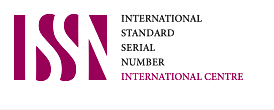| Journal title | The 19th International Postgraduate Research Colloquium |
| Initials | IPRC |
| Online ISSN | Submission |
| ISBN | - |
| Editor-in-chief | Laila Meiliyandrie Indah Wardani Ph.D |
| Publisher | Universitas Mercu Buana |
| Cite Analysis | |
| Indexing | |
| Type | Conference Proceedings |
The first International Postgraduate Research Colloquium (IPRC) was co-hosted by the Behavioral Science Research Institute, (BSRI), Srinakharinwirot University (SWU), Thailand and the Department of Psychology, International Islamic University Malaysia (IIUM) in 2004. Following this, the IPRC was co-hosted by each faculty in alternate years; the IIUM hosted IPRC in 2004 and continued in 2006, 2008, 2010, 2012, 2014, 2016, 2018, and February 2021. The BSRI has hosted the event at Srinakharinwirot University, Bangkok in 2005, 2007, 2009, 2011, 2013, 2015, 2017, 2019, and October 2021. The colloquium is held to provide an avenue of interaction among postgraduate students and academics from Malaysia and Thailand. Every IPRC was held, both faculty members and students (at graduate and PhD levels) are invited to share their research works and proposals at the colloquium. Papers submitted should match the theme of the IPRC. The IPRC invites participants from the universities in the ASEAN region and other countries in ASIA to join this academic exchange.
Since 2014, the organization of the IPRC has expanded to include other universities in Malaysia and Thailand such as Universiti Putra Malaysia (UPM), Selangor, Malaysia and Chiang Mai University (CMU), Thailand. In 2018 Faculty of Psychology, Universitas Mercu Buana (UMB) participated as presenters in IPRC event and then signed MoU with BSRI and IIUM, and officially joined as part of IPRC in 2019 along with Universitas Islam Indonesia (UII). Later, In 2021, two more universities joined IPRC: College of Research Methodology and Cognitive Science, Burapha University (BUU), Thailand; and Department of Education, Faculty of Social Sciences and Humanities, Mahidol University (MU), Thailand.










